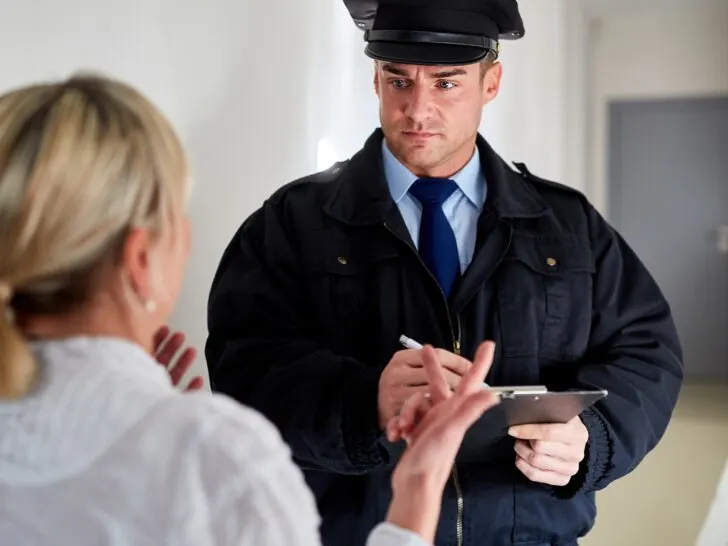It is estimated there are 19 million convicted felons in the United States. The type of crime ranges from small drug infractions to severe crimes like murder. Many people wonder what countries can you travel to with a felony. This article will break it all down for you.
Understanding Travel Restrictions for Felons
Traveling internationally with a felony record comes with unique challenges. Each destination country has different rules, and entry can often depend on factors like the type of offense, if it is a recent conviction, and rehabilitation. Serious crimes, including a prison sentence or offenses involving violence, may lead to stricter travel restrictions by immigration authorities.
Felony Charges vs. Misdemeanors
Not all criminal convictions are viewed equally by foreign governments. Felony convictions, especially for violent or drug-related offenses, often come with more travel restrictions than misdemeanors. Some countries may also ask about offenses involving moral turpitude, which usually involves dishonesty or serious misconduct. However, many destinations do not distinguish between felony and misdemeanor convictions, asking instead whether a person has any criminal record, regardless of criminal offense type.
Visa and Entry Requirements
For travelers with a criminal record, entry requirements can vary widely. Some countries don’t require a visa or may not perform background checks for short-term tourist stays, while others require specific permissions. I think it is always in your best interest to assume the foreign country is aware of your criminal record information based on International laws regarding information sharing. Being prepared with information about each destination’s entry policies can prevent issues at border crossings and ensure a smooth travel experience.

Canadian Law
International border reality shows are enough to scare any US citizen with a traffic citation away from attempting to visit Canada. If you wish to enter Canada you have two options as a convicted felon.
Apply in advance for a Temporary Resident Permit (TRP) which can be valid for just a few days or up to three years. Immigration officials consider this a “hall pass” for a U.S. citizen who would otherwise be blocked from entering.
Your second option is to depend on rehabilitation timelines based on deemed rehabilitation or criminal rehabilitation. Both of these entry options are at the discretion of the immigration officer and require special permission based on evidence you provide. Never assume that your entry will be approved, even if it has been a long time since the original crime.
Further Reading: Do Airlines & TSA Know About My Outstanding Warrant?
Impact of Type and Timing of Convictions
Travelers with non-violent felonies may encounter fewer restrictions than those with violent offenses. Serious crimes, recent convictions, or offenses involving drugs or trafficking may result in more limitations. Countries typically focus on recent or high-severity convictions, so individuals with older, non-violent records may find entry easier. A substantial criminal history, however, could lead to a complete travel ban in some locations.
Importance of Planning Ahead
Knowing what countries you can travel to with a felony is vital to planning international trips smoothly. Research specific entry requirements ahead of time, as these rules can change. Checking embassy websites and immigration updates can help avoid surprises and provide the most accurate guidance.
In 2025 it is especially important to assume any previous knowledge you had about travel bans or borders not doing a criminal background check is no longer valid. Because of the United States new president there are many countries reassessing their tourist visa permissions for U.S. passport holders.
Fun Fact: Former president Donald Trump (and now incoming president Donald Trump) would be denied entry outright from 38 countries if he wasn’t a powerful white male who failed up to become the most powerful man on Earth.

Preparing for International Travel with a Felony Record
Careful planning can make international travel more accessible for people with a felony conviction. Start by researching what countries you can travel to with a felony to understand any restrictions you may face.
- Verify Travel Eligibility: Check the conditions of your parole or probation if they apply. Some people with felony records may require permission to leave the country.
- Have a Valid Passport: A U.S. passport is necessary for international travel, and individuals with a felony record are usually eligible to apply unless convicted of international drug trafficking or other specific offenses. If you’re a first time applicant, it’s straightforward, but be prepared to disclose certain criminal details if required.
- Prepare Documentation: Certain destinations may ask for a police certificate or other court documents, which can clarify your criminal status. For some travelers, reference letters from legal authorities or documentation of completed rehabilitation may assist in entry.
For business trips, student visas, or longer stays, check if there are any additional requirements. Updates from the State Department can also help with guidelines on international travel with a felony.
Whatever you do, do not lie on a visa application form. Your home country cannot protect you from criminal prosecution on foreign countries based if you are caught lying on an arrival card. Your best bet to to hope the immigration officer doesn’t ask any questions about your criminal record, so just smile and don’t act suspicious.
Countries You Can Travel to with a Felony
Potential visitors to any foreign country need to remember that no matter what type of visa they are arriving on or even if they have a clean record, immigration officials have ultimate authority. You can be denied entry even based on suspicion of potential criminal behavior. If they think you intend to work or find a husband or pop out a baby, they can deny entry.
There are no countries that have an official policy stating any and all people with a substantial criminal record are welcome. So, anything from owing back child support to human trafficking absolutely can prevent you from entering different countries.
Some countries don’t specifically look up criminal records for U.S. citizens, while others check as a matter of standard protocol. Here’s a breakdown of some of the best options.

Countries with Fewer Restrictions
- Caribbean Nations: Jamaica and the Dominican Republic generally welcome U.S. travelers without intensive background checks, making these popular options.
- Central and South America: Brazil, Chile, and Ecuador do not typically perform background checks on tourists and have minimal entry barriers.
- Schengen Area (Europe): Many European Union countries in the Schengen Area allow free movement once you’re in. While border agents don’t routinely check criminal records, they can deny entry for certain serious offenses. Plan stays under 90 days to avoid visa complications.
Countries that May Require Additional Documentation or Review
- Canada: Felons with certain criminal convictions need a Temporary Resident Permit (TRP) to enter Canada. Canada also offers criminal rehabilitation for those with older convictions, enabling entry with completed paperwork.
- United Kingdom: The U.K. conducts character tests for serious crimes and may request proof of rehabilitation. Some visitors may be required to show that they pose no risk to the public.
You might think that because Canada and the U.K. have these regulations that you should avoid them. I disagree. It’s better to have clearly outlined laws which give clarity to the immigration authorities versus them seeing a conviction and shutting you out without a second thought. It might be embarrassing to get travel authorization for those old drug offenses, but it should be peace of mind that your money won’t be wasted on a trip where you are denied entry at the border.
Countries with More Complex Entry Requirements
- Australia: Australia conducts a “character assessment,” particularly for serious or recent felonies. Travel may still be possible with additional paperwork, but it requires honesty and preparation.
- New Zealand: Known for its stringent immigration policies, New Zealand requires certain felons to pass a character test and may request additional documentation or interviews.
Some countries, including Japan, China, and South Korea, prohibit entry for individuals with significant criminal records or drug convictions.
Steps to Take if You Are Denied Entry
Being denied entry can be overwhelming, but there are practical steps you can take.
- Stay Calm: Interact respectfully with immigration officers. Arguing can worsen the situation.
- Contact Your Embassy: U.S. embassies provide support, helping travelers understand their options and possible next steps.
- Ask About Special Permissions: Some countries offer case-by-case waivers or temporary permits, especially if there’s an opportunity to show rehabilitation.
- Return Home and Seek Rehabilitation: If you’re denied entry, addressing past convictions and preparing additional documentation may make future travel possible.
- Request Documentation: A record explaining the reason for denial can be helpful for reapplying or understanding specific legal issues.
Practical Tips for Felons Traveling Internationally
Traveling with a felony record may be challenging, but it is possible with the right planning.
- Research Visa Requirements: Countries have different policies, especially concerning criminal records, so it’s best to check in advance.
- Maintain a Valid Passport: This is essential for all international travel. Even with a felony, you can likely secure a U.S. passport, but double-check with your probation officer or parole officer if necessary.
- Seek Legal Advice: Consulting a criminal defense attorney can provide clarity on your eligibility for travel and prepare you for potential border questions.
- Be Transparent: If asked about your record, honesty is often the best approach. Certain countries, especially in the Schengen Area, may allow entry without background checks, while others value transparency.
- Stay Updated on Policies: Immigration policies can change, so track updates for what countries you can travel to with a felony. Knowing recent changes will keep your travel plans secure.
No matter where you are traveling or how minor your criminal conviction may be, you should absolutely have travel insurance. Ensure your policy allows for reimbursement for any reason including being denied entry into the country. It would be a shame to pay for an entire trip you don’t even get to enjoy.
Travel Is Possible for U.S. Citizens with a Felony Record
While a felony record can complicate international travel, there are still many options. Some countries have lenient policies or will assess on a case-by-case basis. Planning ahead and understanding each destination’s entry requirements will make the process smoother.
While there are no countries I can point to and say, you will not be denied entry if you go here, there are some that just don’t routinely check. Many places typically welcome U.S. travelers without excessive scrutiny, meaning they would never even know about your felony record.
Travel Tips Recap:
- Check Entry Requirements Early: Each country has unique rules.
- Plan Ahead for Any Required Visas or Permits: Know your options and apply in advance.
- Stay Informed: Immigration rules change; being proactive ensures smooth travel.
- Get Insurance: In the event you are denied entry, you will want a path to recoup money spent.
Travel is achievable even after a felony conviction. With proper preparation, your options might be broader than you think. Safe travels!


